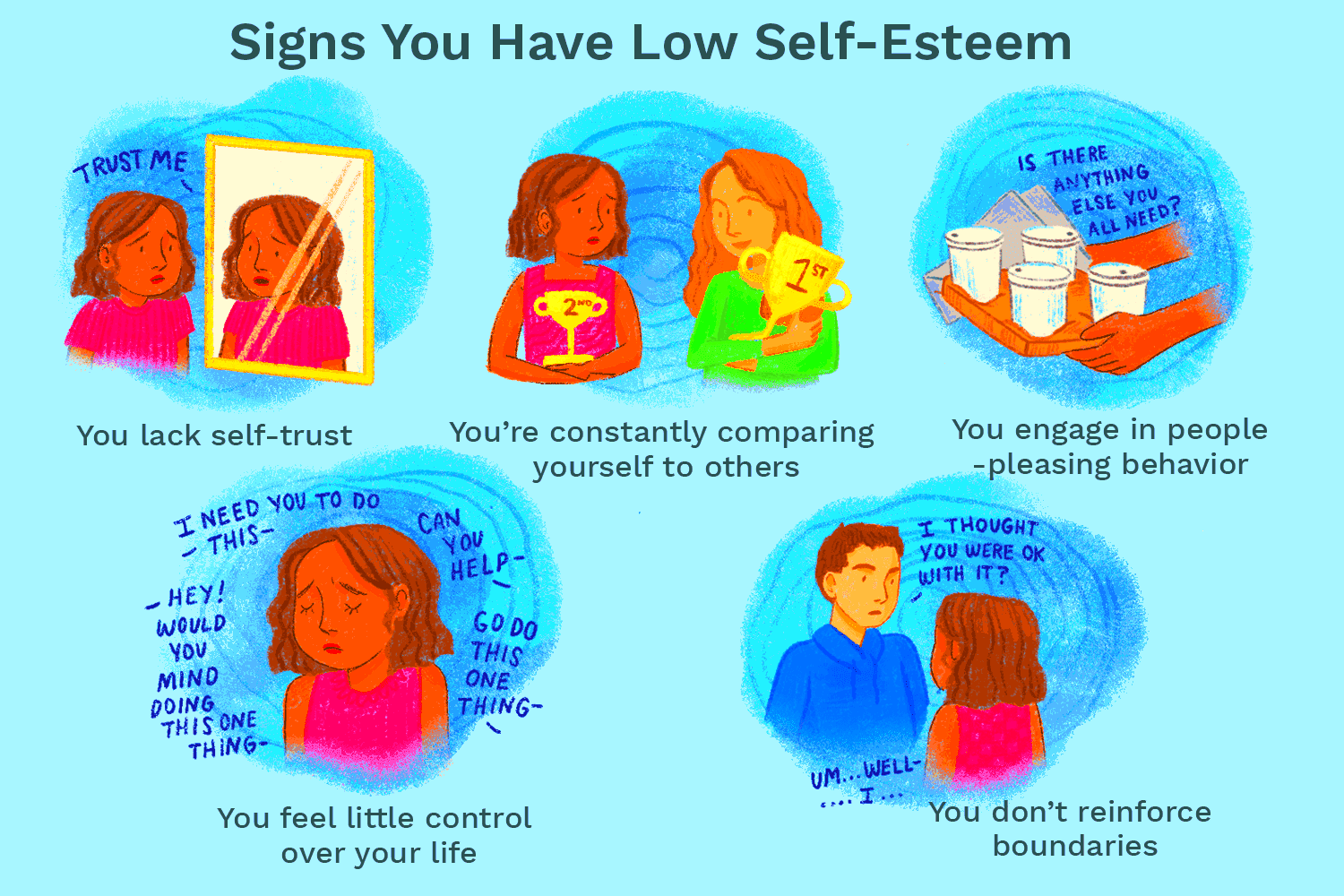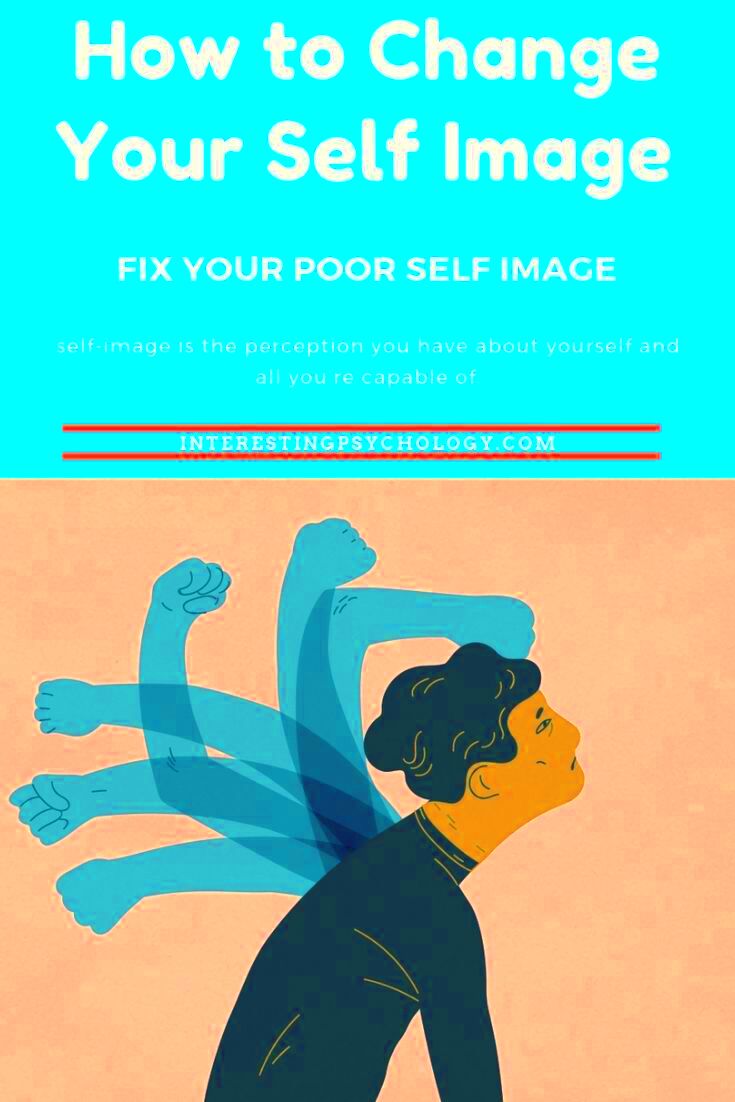Self-image issues are more common than we think, affecting people of all ages, genders, and backgrounds. These issues can significantly influence how someone sees themselves, how they interact with others, and how they go about their daily lives. Poor self-image can lead to low self-esteem, mental health struggles, and even physical health concerns. The way we perceive ourselves shapes our confidence, relationships, and overall happiness. So, understanding these challenges and offering the right kind of support can make a real difference in someone's life.
Understanding the Root Causes of Self-Image Problems

Self-image issues don’t just appear out of nowhere. There are often underlying causes that can be traced back to specific life events, social influences, or personal experiences. Identifying these root causes is key to understanding how to offer support effectively.
- Negative Past Experiences: Bullying, trauma, or criticism can leave lasting scars that influence a person’s self-view.
- Social Media Influence: Constant comparison to idealized images online can distort self-image, especially among teenagers.
- Cultural and Societal Expectations: The pressure to meet certain beauty standards or societal norms can deeply affect how someone perceives themselves.
- Family Dynamics: The way someone is raised or the values placed on appearance can influence their self-worth.
When you understand these causes, you can better empathize with the person and offer support in a way that addresses their specific struggles.
Practical Tips for Offering Support to Someone Struggling with Self-Image
Helping someone with self-image issues requires patience, empathy, and a non-judgmental attitude. Here are some practical tips you can use to support someone:
- Listen Without Judgment: Sometimes, the best way to help is simply by being there. Let them express their feelings without interrupting or offering quick fixes.
- Validate Their Feelings: Acknowledge that their feelings are real and valid. It’s important to avoid trivializing their struggles.
- Focus on Strengths: Encourage them to focus on their positive qualities, whether it’s their talents, personality, or achievements. Remind them that they are more than their appearance.
- Be Patient: It takes time to build self-esteem. Encourage small, positive steps and celebrate their progress.
Being supportive doesn't mean having all the answers, but it does mean being a consistent, compassionate presence in their life. Small gestures of kindness can go a long way in helping someone overcome their self-image struggles.
How to Encourage Positive Self-Talk and Self-Acceptance
Encouraging positive self-talk and self-acceptance is one of the most powerful ways to help someone struggling with self-image issues. Often, people with low self-esteem engage in negative self-talk, where they criticize themselves and focus only on their flaws. Over time, this becomes a habit that deeply impacts their confidence and well-being. Helping them shift this pattern requires patience, understanding, and the right approach.
- Challenge Negative Thoughts: Gently ask them to challenge their negative thoughts by asking, “Is this thought based on facts or assumptions?” Helping them see the difference between their thoughts and reality is a key step toward positive change.
- Use Affirmations: Encourage them to create and repeat positive affirmations daily. Simple statements like “I am worthy” or “I am enough” can slowly start to change the way they think about themselves.
- Focus on Strengths: Regularly highlight their positive qualities and talents. Help them see their worth beyond physical appearance by discussing their achievements, skills, and character traits.
- Promote Self-Compassion: Teach them to treat themselves with kindness. Self-compassion is about acknowledging imperfections without harsh judgment. Encourage them to be as kind to themselves as they would be to a friend going through the same struggles.
With consistent support and encouragement, anyone can start to replace their negative inner dialogue with a more positive and accepting view of themselves.
The Role of Active Listening in Supporting Someone with Self-Image Issues
Active listening is an essential skill when supporting someone with self-image issues. It's not just about hearing their words but truly understanding their feelings and showing that you care. Often, people with self-image struggles need to be heard more than they need advice. When we listen actively, we make them feel valued and respected, which can have a profound impact on their emotional well-being.
- Give Full Attention: Show that you’re fully present by maintaining eye contact and avoiding distractions. Put your phone away, and focus on what they are saying.
- Use Empathetic Responses: Respond with empathy by acknowledging their feelings. For example, “I can understand how that must feel” or “It sounds like you're feeling really overwhelmed by this.”
- Don’t Interrupt: Let them speak without interrupting or jumping to conclusions. Give them the space they need to express themselves fully.
- Ask Open-Ended Questions: Encourage further discussion by asking open-ended questions like, “How does that make you feel?” or “What can I do to help?” These questions show you’re invested in their emotional experience.
Active listening is more than just hearing words—it’s about providing a safe space where they can express themselves freely without fear of judgment or advice. This fosters trust and deepens your connection with them, making it easier to offer meaningful support.
Setting Boundaries and Being Respectful When Offering Help
When offering support to someone with self-image issues, it’s crucial to set boundaries and be respectful of their needs and feelings. While it’s important to be there for them, it’s equally important to respect their space and not push them into uncomfortable situations. Establishing clear boundaries ensures that you’re helping in a way that is both respectful and effective.
- Respect Their Pace: Understand that healing from self-image issues takes time. Don’t rush them to “feel better” or “get over it” quickly. Let them move at their own pace.
- Avoid Pushing Advice: Sometimes, giving unsolicited advice can feel overwhelming. Ask if they want advice before offering it, and let them guide the conversation.
- Offer Support Without Overwhelming: Offering help is great, but it’s essential not to overwhelm the person. Let them know you’re there, but also give them space to process their emotions on their own.
- Set Personal Boundaries: Take care of your own emotional needs too. It's okay to take breaks or step back if you feel emotionally drained. Supporting someone should be a balanced exchange, not a one-sided burden.
By respecting their boundaries and offering help in a non-intrusive way, you create a supportive environment that fosters healing and growth. Remember, everyone’s journey with self-image is personal, and your role is to offer gentle encouragement, not to “fix” them.
When Professional Help Is Needed for Self-Image Issues
While offering support and encouragement is vital for someone struggling with self-image issues, there are times when professional help is necessary. Sometimes, the issues run deeper than what friends or family can address, and seeking a mental health professional's expertise can make a significant difference. If someone’s self-image concerns are affecting their daily life, relationships, or overall mental health, it may be time to consider therapy or counseling.
- Persistent Negative Self-View: If the individual continues to have a distorted or overly negative view of themselves despite your support, it may indicate an underlying mental health issue such as depression or an eating disorder that needs professional treatment.
- Isolation or Withdrawal: A person who begins to isolate themselves from friends, family, or activities they once enjoyed may be struggling with deep-seated self-image issues that require therapy to address.
- Physical Signs of Distress: If someone’s self-image concerns lead to physical symptoms like changes in eating or sleeping habits, or self-harming behavior, professional intervention is crucial.
- Unresolved Trauma: If the self-image issues stem from past trauma or abuse, a therapist specializing in trauma can help them process these experiences and heal.
Reaching out for help from a mental health professional can provide the tools and support necessary to help someone work through their self-image issues in a safe and structured way. Remember, seeking professional help is not a sign of weakness, but an essential step toward healing and well-being.
How to Maintain Your Own Emotional Well-being While Supporting Someone
Supporting someone with self-image issues can be emotionally demanding, and it's essential to maintain your own well-being while being there for them. If you don’t take care of your emotional health, it may be harder to support them effectively. Here are some strategies to ensure you’re looking after yourself while helping others:
- Set Clear Boundaries: As much as you want to help, it’s important to set emotional and mental boundaries. Don’t feel like you have to be available 24/7, and make sure you’re balancing your time between supporting them and caring for yourself.
- Seek Your Own Support: Talk to a friend, family member, or even a therapist about your feelings. It’s important to have an outlet where you can express your own emotions, especially if you’re feeling overwhelmed.
- Practice Self-Care: Engage in activities that help you relax and recharge, whether it's exercising, meditating, journaling, or spending time with loved ones. Taking time for yourself allows you to come back to the situation with renewed energy and compassion.
- Avoid Taking It Personally: If the person you’re supporting reacts negatively or withdraws from you, remember that this is not a reflection of your worth. Self-image struggles can cause people to push others away or react defensively, so don’t take it personally.
By caring for your own emotional needs, you’ll be better equipped to support someone in a meaningful and sustainable way. It’s about finding a balance between being there for them and looking after your own health.
FAQ on Supporting Someone with Self-Image Issues
If you’re new to supporting someone with self-image issues, you might have some questions about the best way to approach it. Here are some frequently asked questions to guide you:
- What should I do if someone refuses help? If someone isn't ready to accept help, it's important to respect their pace. Gently offer support without pushing them. Let them know you’re there for them when they’re ready to talk or seek help.
- How can I tell if someone’s self-image issues are serious? If their self-image struggles lead to changes in behavior, mood, or physical health (like drastic weight loss, isolation, or depression), it may be time to encourage them to seek professional help.
- Can I fix their self-image issues? While you can provide support and encouragement, it's essential to remember that you can't fix someone's self-image issues on your own. Healing is a personal journey, and professional help is sometimes necessary for deeper issues.
- How can I talk about self-image issues without making them feel worse? Be sensitive and non-judgmental in your approach. Avoid making them feel guilty or pressured to “get over it.” Focus on listening and validating their feelings rather than offering solutions or criticisms.
Supporting someone with self-image issues can be challenging, but it can also be incredibly rewarding. By being patient, empathetic, and informed, you can make a positive impact on their journey toward healing.
Conclusion: Key Takeaways for Helping Loved Ones with Self-Image Concerns
Supporting a loved one with self-image concerns can be a delicate and ongoing process, but it’s also incredibly important. The key to offering effective support is to approach the situation with empathy, patience, and understanding. It’s essential to listen actively, validate their feelings, and help them focus on their strengths and positive qualities. While it’s vital to offer encouragement, it’s also crucial to know when to suggest seeking professional help if their struggles go beyond what you can provide.
Remember, healing takes time, and each person’s journey is unique. By setting boundaries, practicing self-care, and creating a safe space for open conversations, you can help them feel supported without becoming overwhelmed yourself. Being consistent, respectful, and non-judgmental is the foundation of making a meaningful difference in their lives. With the right tools and mindset, you can be a positive force in their journey toward improved self-image and emotional well-being.











